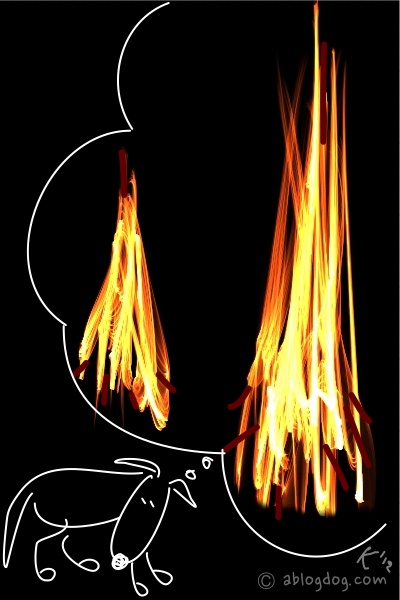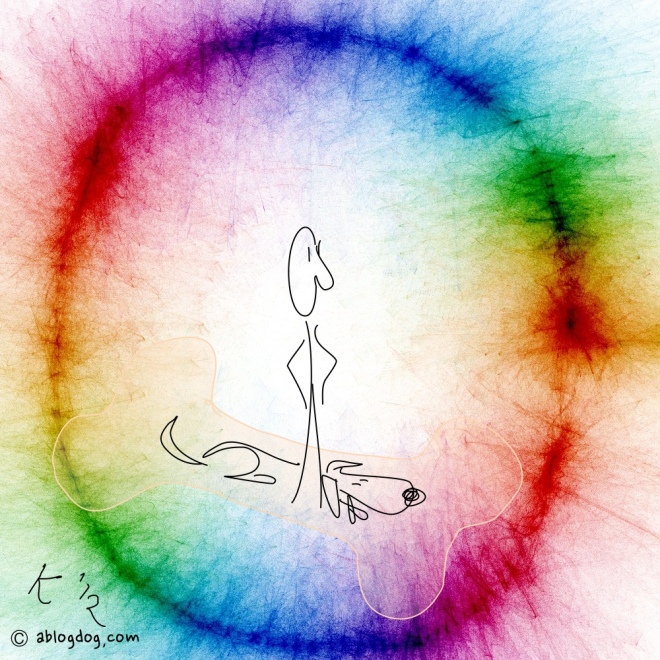
Yesterday I wrote about the SEP article on existence. Today I’ll describe what I think it means to say something exists, and what that implies for “reality“.
All the world’s a stage
When we think about the world, we have an image in our minds, though it’s not necessarily visual. I think of this as our inner or mental stage. It can become a blasted heath, the banquet hall in Hogwarts, the office, or our dream holiday location: let’s call these different sets. When we imagine something or someone to be “there”, we add a placeholder or avatar on our stage to that particular set (e.g. “blasted heath”) with mental notes describing the properties we attribute to that object or person.
A placeholder for a chair may have notes like: can sit on this, stand on it to reach top shelf, take it apart and throw in fire (n.b. owner might not like this), best not collide with it, as may hurt.
Let us say something exists with these properties relative to a mental set if adding the mental placeholder and notes there leads to good results, i.e. accurate predictions and appropriate actions. If I walk into the chair, I’ll hurt myself, just as I thought, and hopefully avoid it in future.
Appropriate properties are needed for these predictions: if I believe the bugblatter beast makes a good meal for tourists, rather than of tourists, our poor hitchhiker may well get eaten.
Both properties and existence belong to their mental set. When Harry Potter grabs his broomstick (note: it flies!), I’ll know what to expect, even though I’m aware my own broomstick can’t do that. And I can talk about Harry Potter, although I know he’s a fictional character.
Say thy opinion
For some things, we all agree they exist in this sense.
I’ve never met anyone who chooses to sit down just beside the chair rather than on it. I’m not talking about metaphysical beliefs. You may believe the world is an illusion; you’ll still take care to sit in the place where-the-chair-isn’t. That’s because if you step out in front of the tram you don’t believe exists, or walk off the roof you believe is an illusion, even once, I’ll never meet you.
For other things, it’s not quite as clear.
I accept that protons, electrons, and photons exist in this sense because the predictions based on them seem fairly accurate to me. I’m not sure what a photon is exactly, as it’s one of these strange things that is sort-of-a-wave and sort-of-a-particle, but I’m happy to stick a mental toothpick in my stage set for the “real world” with notes like: flies around, lets me see things, best not worry about it too much.
Some people think they see things just because those things are there. These people don’t feel the need to allow for weird things like photons and say, “mmm, whatever” – like I do when the physicists start talking superstrings.
It’s when we consider supernatural entities, e.g. God, that things get complicated.
For some people, God is an integral part of their life. They agree you can’t touch him like a chair, but they “feel” him, talk to him etc. They have a God-placeholder in their world, with varying properties depending on their particular faith, and that works just fine for them.
Others cannot imagine a world with God in it. When they try to put a God-placeholder on their mental stage, it leads to all kinds of contradictions, and is generally unpleasant – so they remove it, and are completely happy without it.
Airy nothing
As both mental worlds work well, I believe both views, both truths, are equally valid. Whether or not you believe God exists*, you can come to a working view of the world – though the two will be rather different. And questions about truth aside, you may like one of these worlds better than the other.
*Caveat: I am talking only about the claim that God exists, not about claims concerning creation or miracles.
Now, on my mental stage there isn’t a place for God.
In my view, people who believe that morality comes from God are in fact creating their own morality. They pick which Bible stories to use and which to ignore for deciding what is right or good. And then they attribute this to God because having a clear moral authority makes them feel more comfortable than believing they have to make things up as they go along. But this line of reasoning is in my head. On my mental stage. With the placeholders and properties I put there.
I assume that conversely, people who believe in God think I’ve somehow derived my morality from God and just don’t realise it. On their inner stage the set for “the real world” looks quite different from mine.
To conclude with truth
I wish we could all accept that there is no absolute truth, no final answer to questions about concepts and supernatural entities!
If people from all sides accepted this, maybe we could stop arguing about who is right, and try to find common ground. On how to live together, on how to make this world a better place. Regardless of whether we believe in another one. O brave new world.
***
The quotes: 01, 02, 03, 04, 05, 06.
Next week I want to write on why hate hurts – a continuation of Heresy n°3.




















